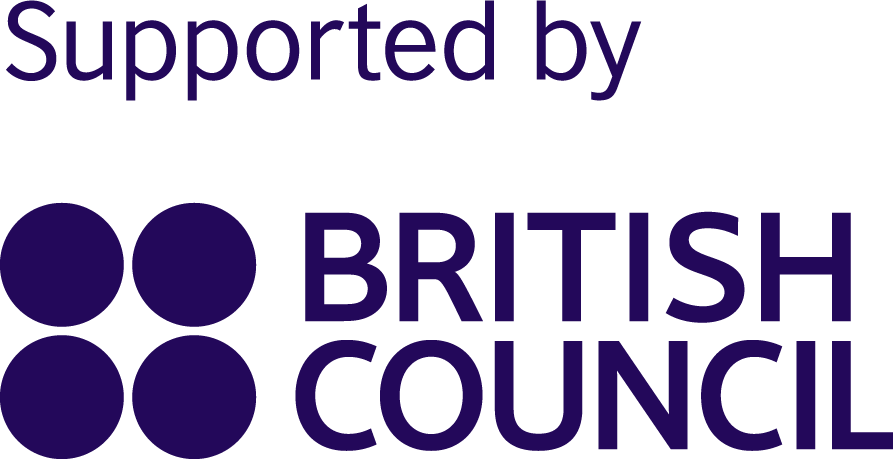UK–Philippine partnership to help tackle the challenges of future water security in the Philippines
New ‘hydrological hub’ to foster research and provide essential national water management datasets and tools.
07/11/2024 By BGS Press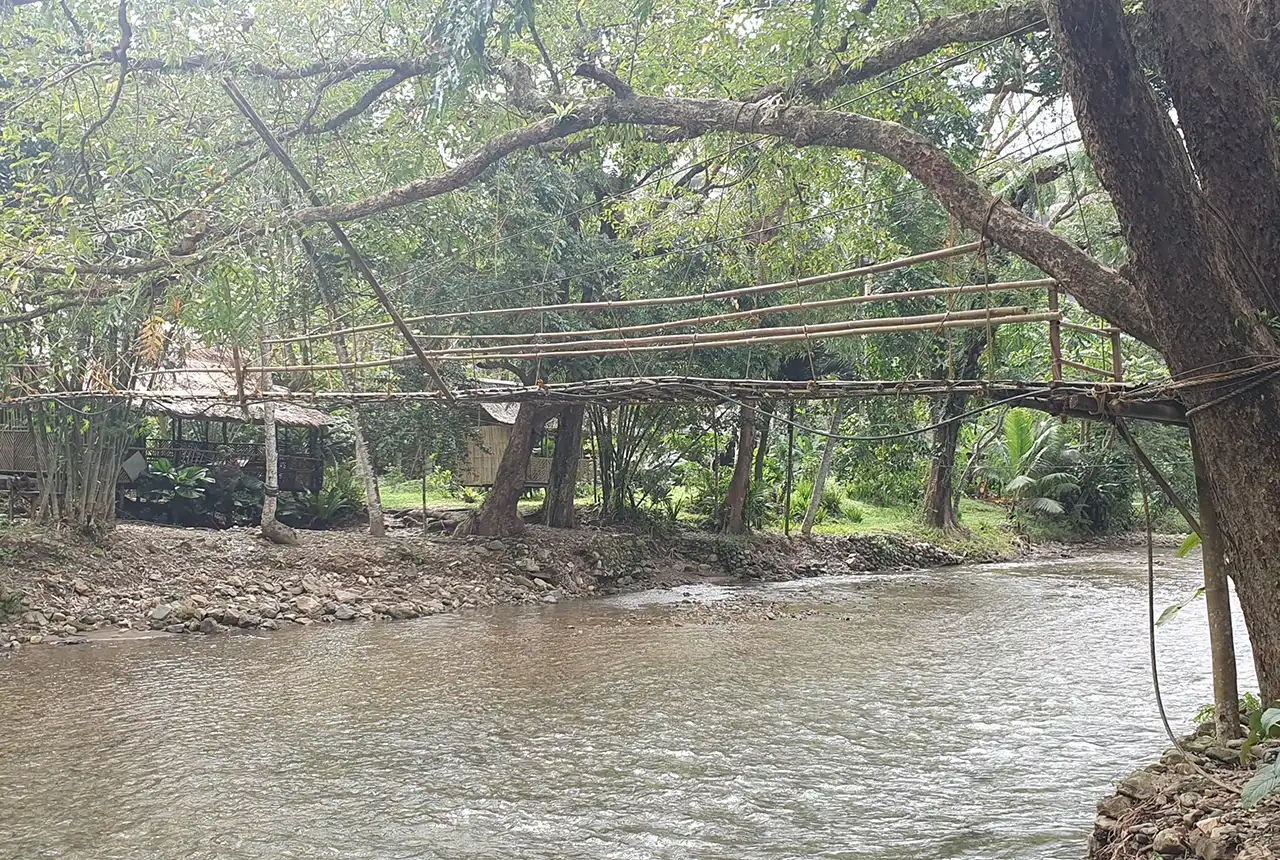
With the combined risks of sea level rise, rising temperatures and an increased frequency of extreme weather events, the Philippines is one of the countries most at risk from the effects of climate change. In an effort to mitigate this threat, researchers from BGS, Ateneo de Manila University and the University of the Philippines will work together to deliver the results of hydrological research for the benefit of Filipino stakeholders.
Funded by the UK Department for Science Innovation and Technology’s International Science Partnerships Fund in partnership with the British Council, the ‘Philippine Hydro Hub’ project will build a new collaborative community of UK and Filipino academics to advance research on the hydrology of the Philippines. It will also ensure that research outputs can be used by stakeholders outside of the academic community by creating an open access, easy-to-use platform. The platform will provide access to the latest hydrological datasets, tools and models such as the Philippine National Hydrological Model.
Climate change affects both the natural ecosystem and agricultural productivity and large urban centres in the Philippines lie in coastal regions, where the population is particularly vulnerable to typhoons and sea-level rise. Through the hydro hub, the project aims to provide government agencies and local government units with essential data and improved tools for assessing the effects of climate change on surface and groundwater, enabling more effective use of resources and development of adaptation strategies.
As flood and drought events affect multiple sectors, there is the potential for wide-ranging benefits, including:
- water resource management
- agriculture
- economic development
- energy
- environment and natural resources
- housing and urban development
- tourism
- transportation and other infrastructure
Access to this essential data will support a sustainable water future for the Philippines and, ultimately, has the potential to save lives as the effects of extreme weather events increase.
Ensuring that hydrological research can benefit society in countries like the Philippines, where climate change affects the future water resources, is very important. This new partnership will advance hydrological science in the Philippines and provide new tools to regulators and managers to make decisions for a sustainable and resilient water future.
I am very excited to continue our collaboration with Ateneo de Manila University and establish a new collaboration with the University of the Philippines. This will allow us to shape past and future research activities in the Philippines to useful and usable products and tools for Filipino stakeholders.
Dr Johanna Scheidegger, project leader, BGS.
The project focuses on bridging the gap between professional water resource researchers and managers, and agencies with direct links to local communities. It will also build capacity and provide innovation opportunities within multiple sectors.
In the recent release of the 2024 World Risk Report, the Philippines continued to rank first as the most-at-risk country due to its ‘exposure to natural hazards, the susceptibility of the population and the coping and adaptive capacities of societies’.
As a Filipino and as an environmental scientist, I look forward to the Philippine Hydro Hub to build the capacity of Filipinos not only to conduct research on hydrology but to develop innovative solutions to manage our water resources and to develop our resilience to climate change as a Nation and as a society.
This renewed partnership with BGS and the new partnership with the University of the Philippines will indeed bridge the gap in understanding this crucial resource that has become both a blessing and a bane to the Philippines.
Maria Aileen Leah G Guzman, PhD, Department of Environmental Science, School of Science and Engineering, Ateneo de Manila University.
As presented in the National Water Quality Status Report (2014 to 2019) demand for sustainable water resources is on the rise throughout the country. Groundwater development is outpacing other sources nationwide as local government units search for sustainable sources to meet this growing demand.
As a hydrogeologist, I welcome this opportunity to support the Philippine Hydro Hub and build the capacity of Filipinos to advance hydrogeologic research and build innovative solutions for determining watershed capacity and improving water resource management to address these challenges and the social condition of equitable water access for all Filipinos.
The new partnership with BGS and Ateneo de Manila University is exciting to build translational research in support of this challenging issue and provide a linkage between academia, government and local stakeholders throughout the Philippines.
Robert Michael DiFilippo, PhD, National Institute of Geological Sciences, College of Science, University of the Philippines.
About the project
This work was supported by a Research Collaborations grant, ID [1203756621], under the International Science Partnerships Fund. The grant is funded by the UK Department for Science Innovation and Technology in partnership with the British Council.
For more information
For more information, please contact the BGS Press Office (bgspress@bgs.ac.uk) or call 07790 607 010.
|
|
Relative topics
Related news

BGS scientists join international expedition off the coast of New England
20/05/2025
Latest IODP research project investigates freshened water under the ocean floor.
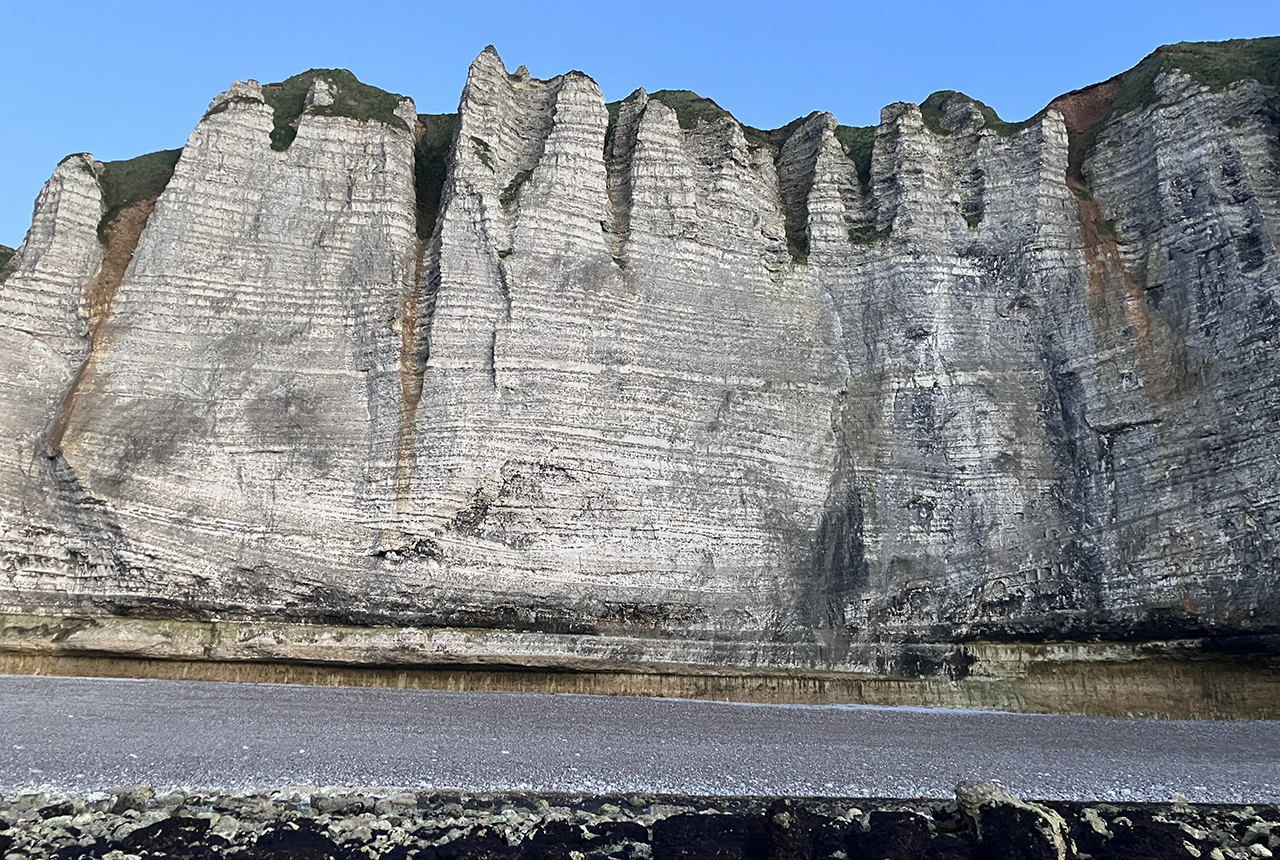
Geology sans frontières
24/04/2025
Geology doesn’t stop at international borders, so BGS is working with neighbouring geological surveys and research institutes to solve common problems with the geology they share.
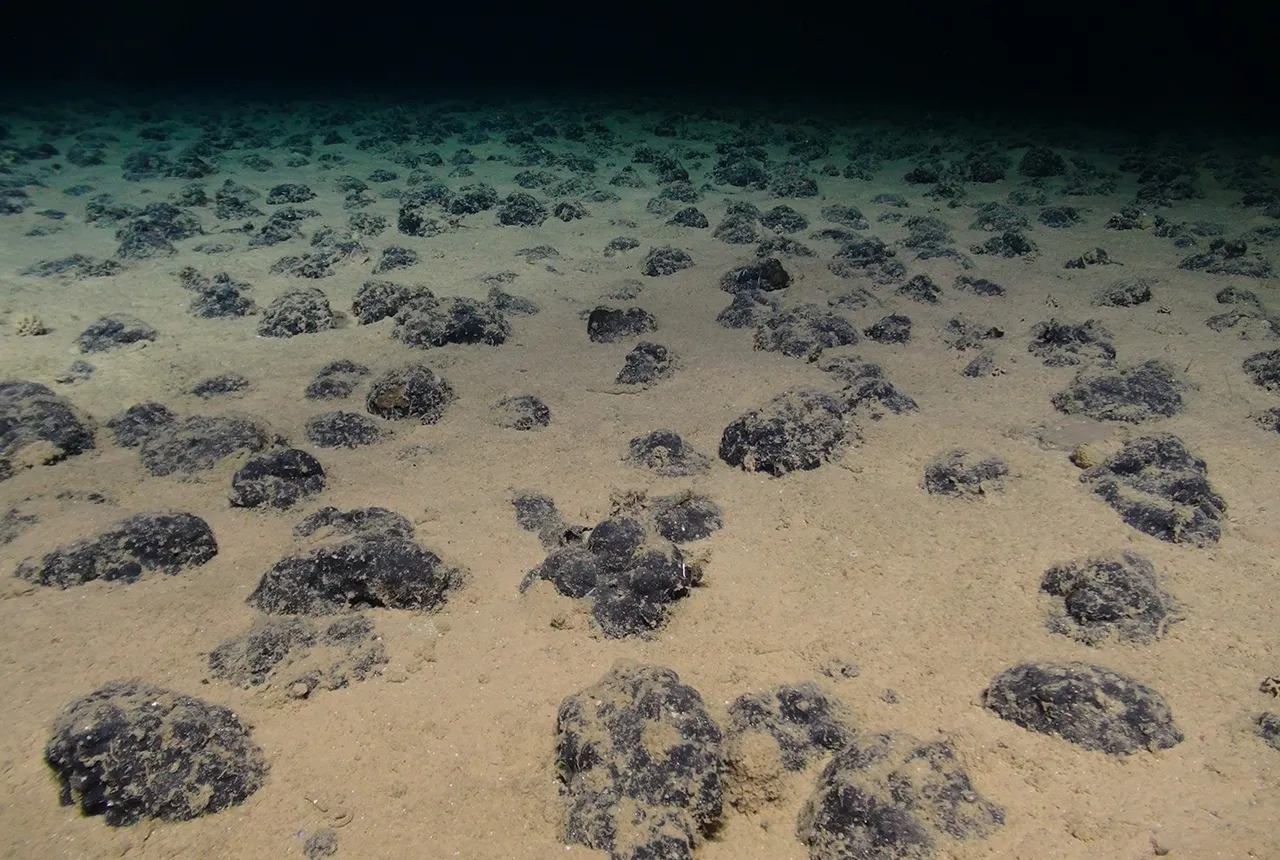
New study reveals long-term effects of deep-sea mining and first signs of biological recovery
27/03/2025
BGS geologists were involved in new study revealing the long-term effects of seabed mining tracks, 44 years after deep-sea trials in the Pacific Ocean.
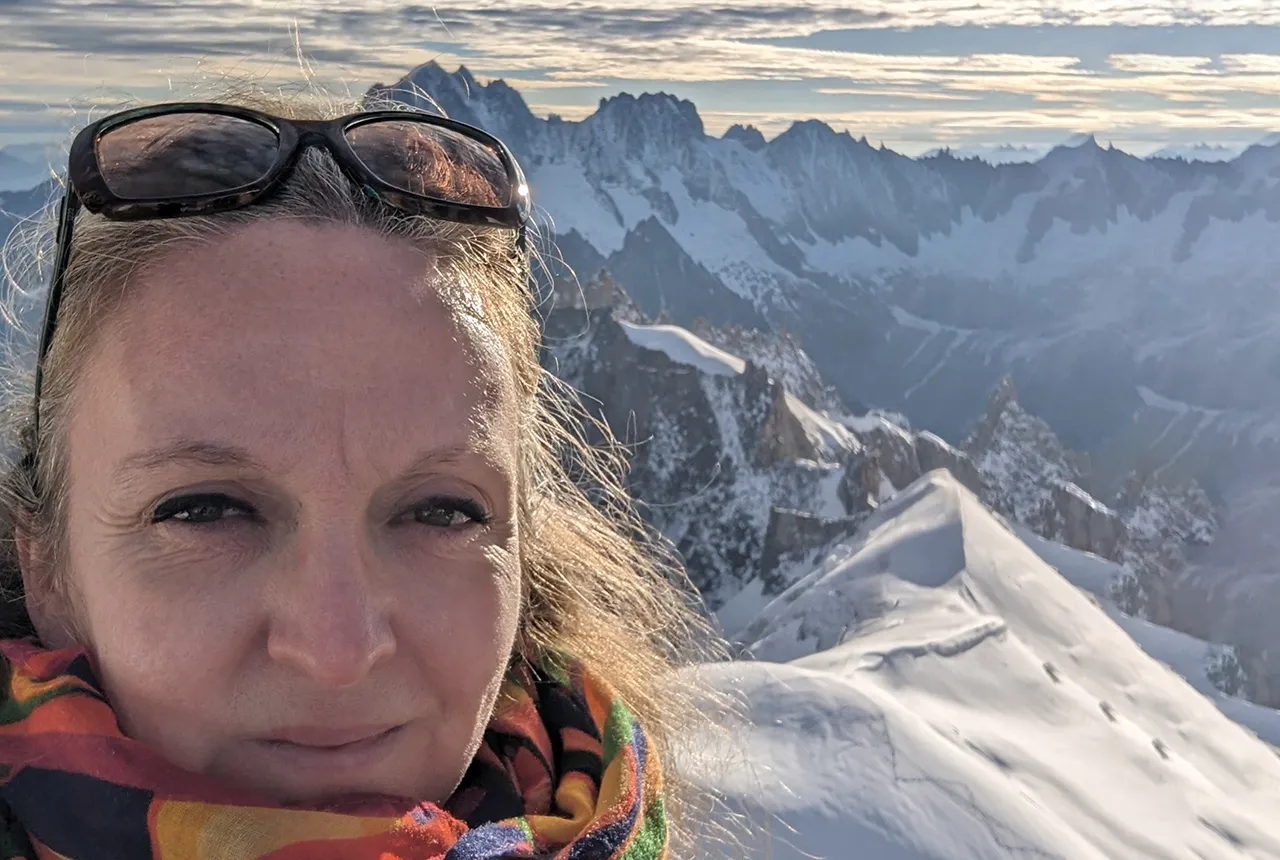
BGS announces new director of its international geoscience programme
17/03/2025
Experienced international development research leader joins the organisation.
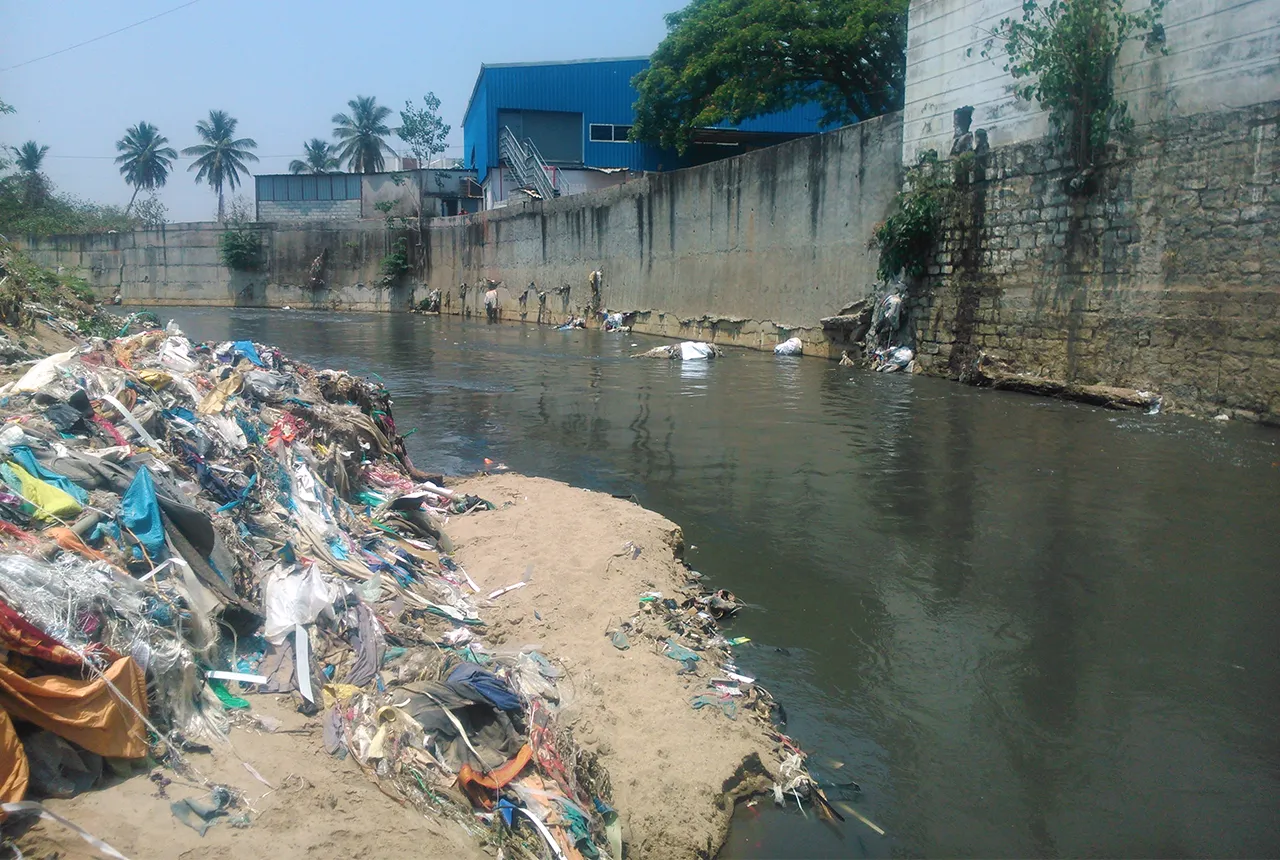
Presence of harmful chemicals found in water sources across southern Indian capital, study finds
10/03/2025
Research has revealed the urgent need for improved water quality in Bengaluru and other Indian cities.
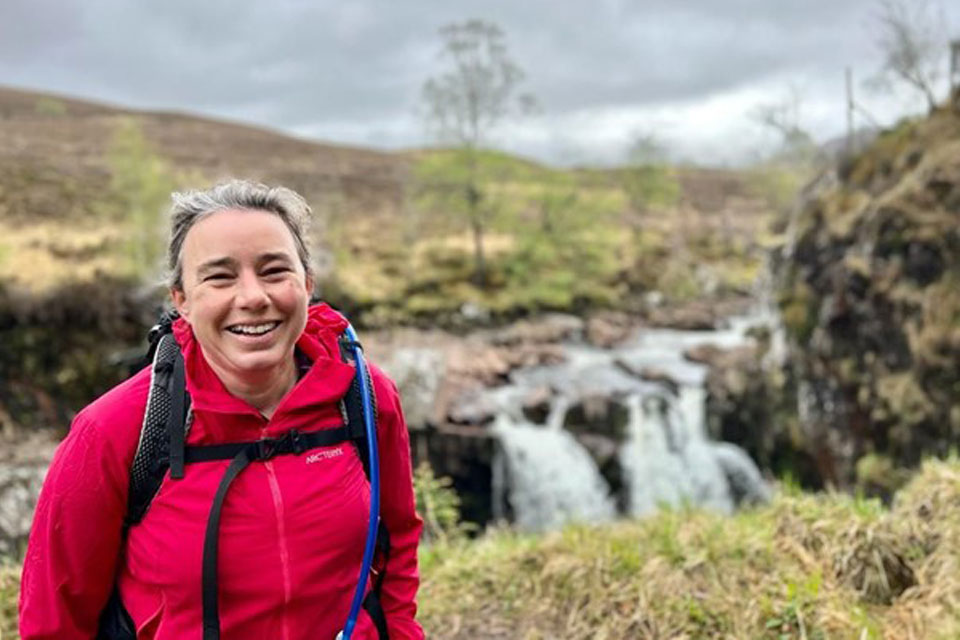
Dr Kathryn Goodenough honoured with prestigious award from The Geological Society
27/02/2025
Dr Kathryn Goodenough has been awarded the Coke Medal, which recognises those who have made a significant contribution to science.
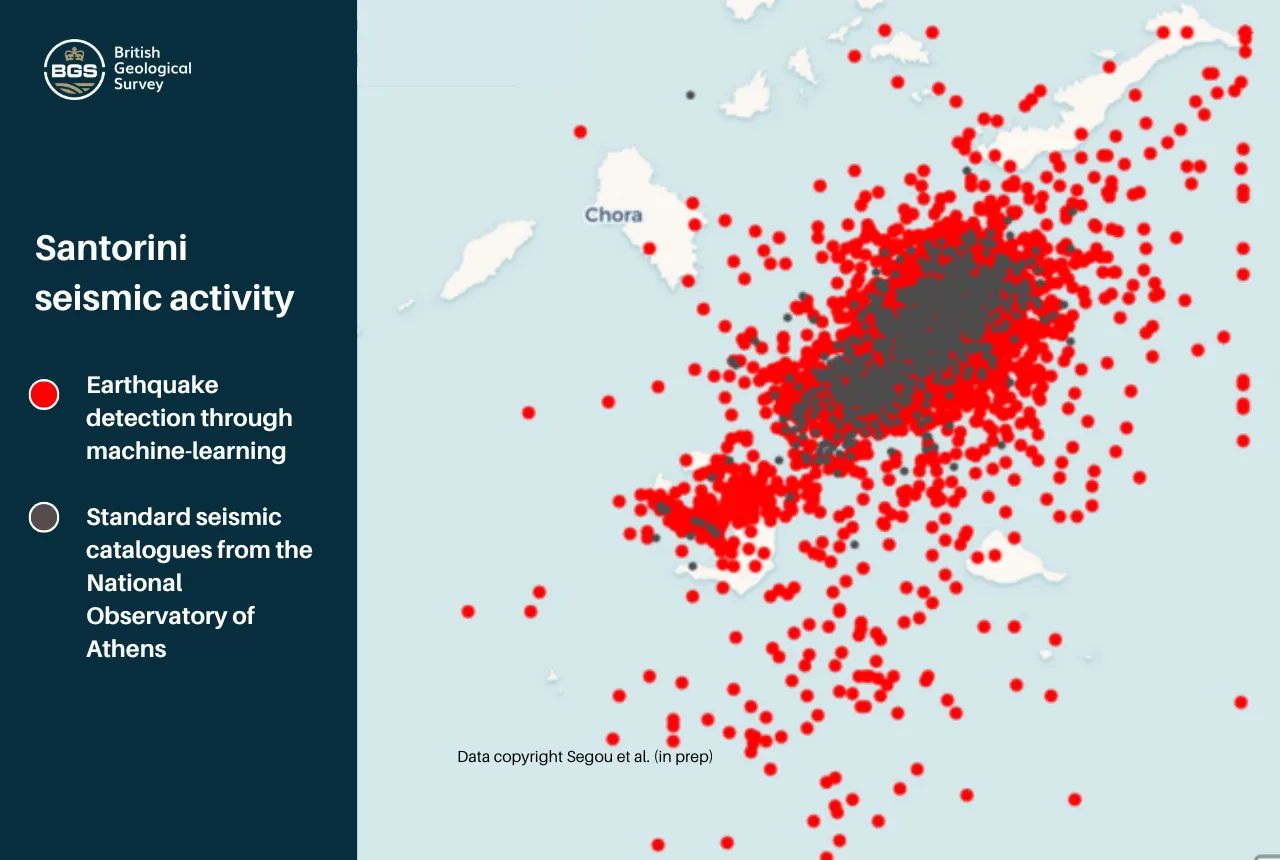
Artificial intelligence is proving a game changer in tracking the Santorini earthquake swarm
07/02/2025
Scientists are harnessing the power of machine learning to help residents and tourists by detecting thousands of seismic events.
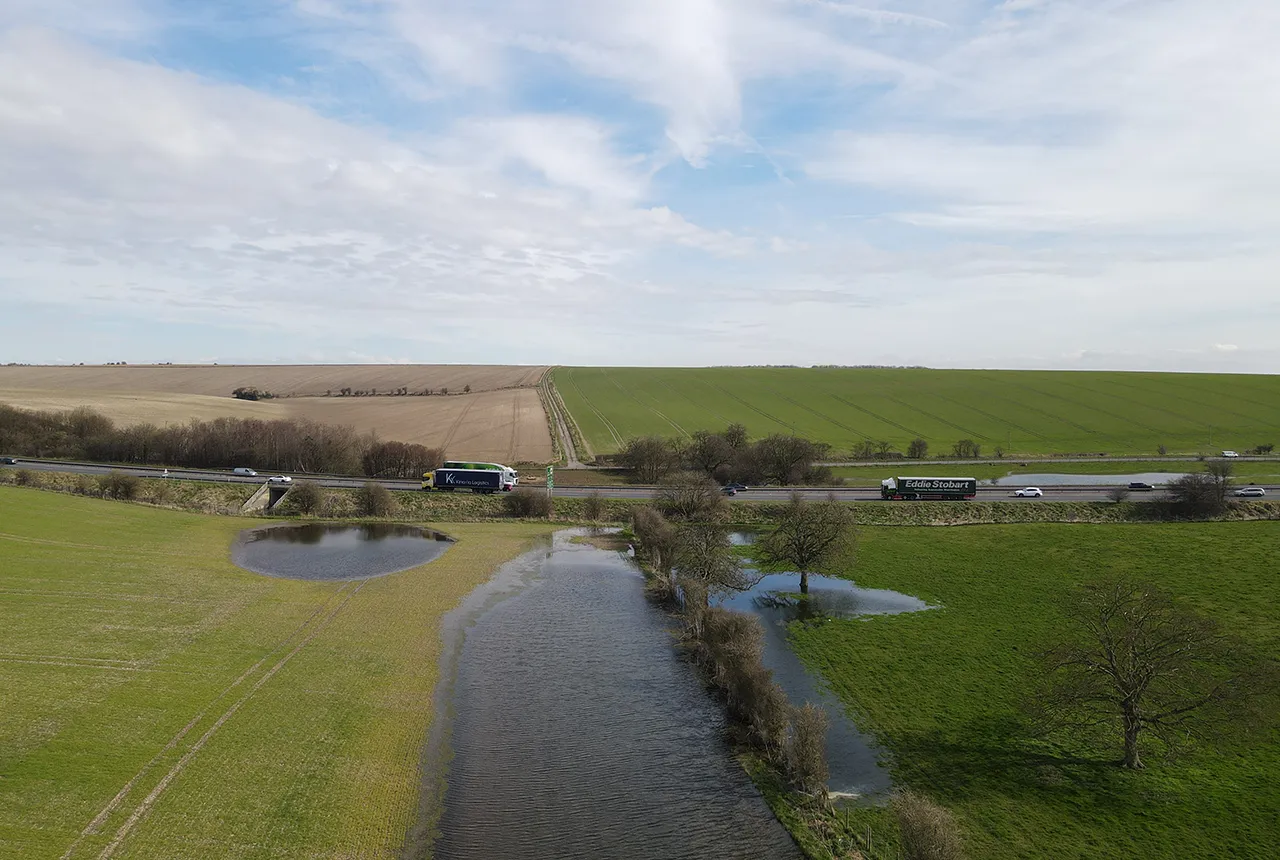
Pioneering tool expanding to analyse agricultural pollution and support water-quality interventions
06/02/2025
An online tool that shows which roads are most likely to cause river pollution is being expanded to incorporate methods to assess pollution from agricultural areas.
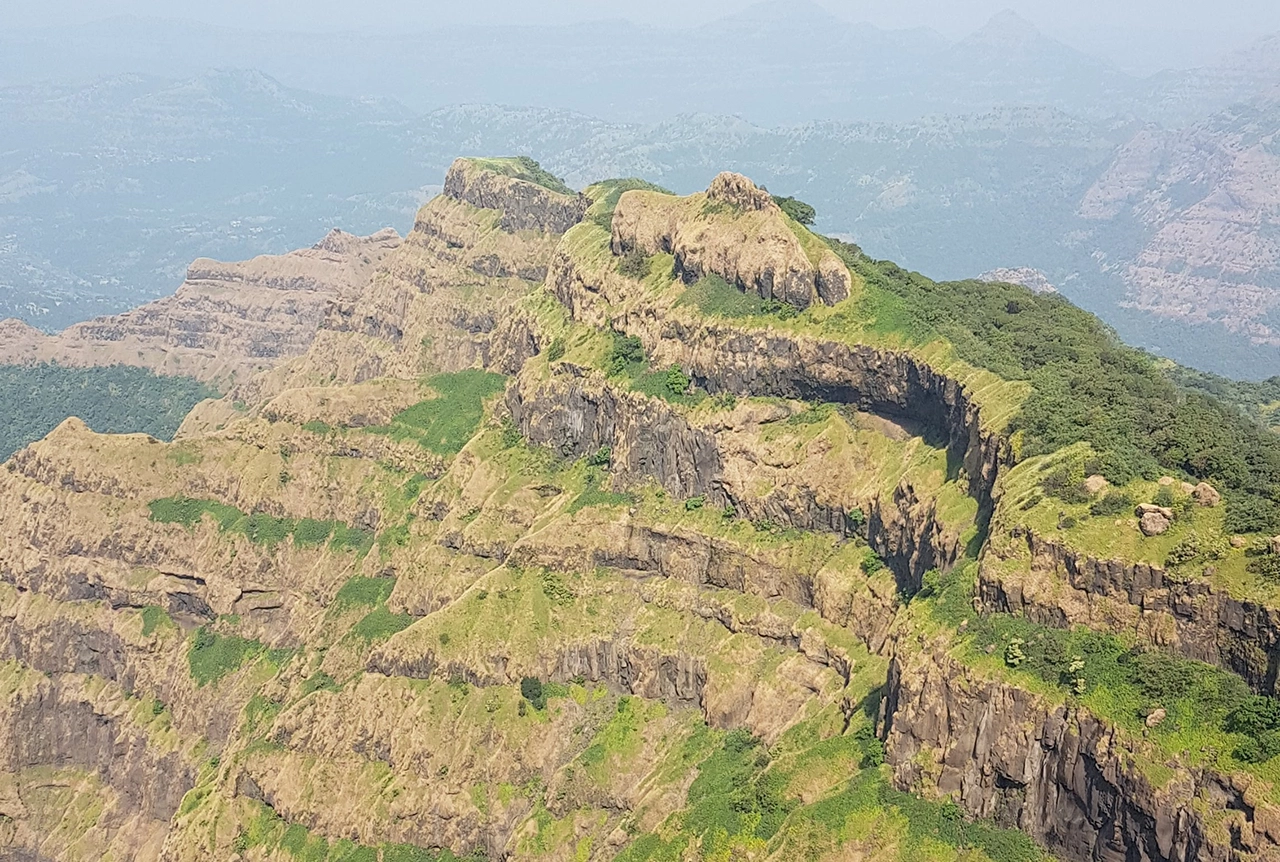
Could underground disposal of carbon dioxide help to reduce India’s emissions?
28/01/2025
BGS geologists have partnered with research institutes in India to explore the potential for carbon capture and storage, with an emphasis on storage.
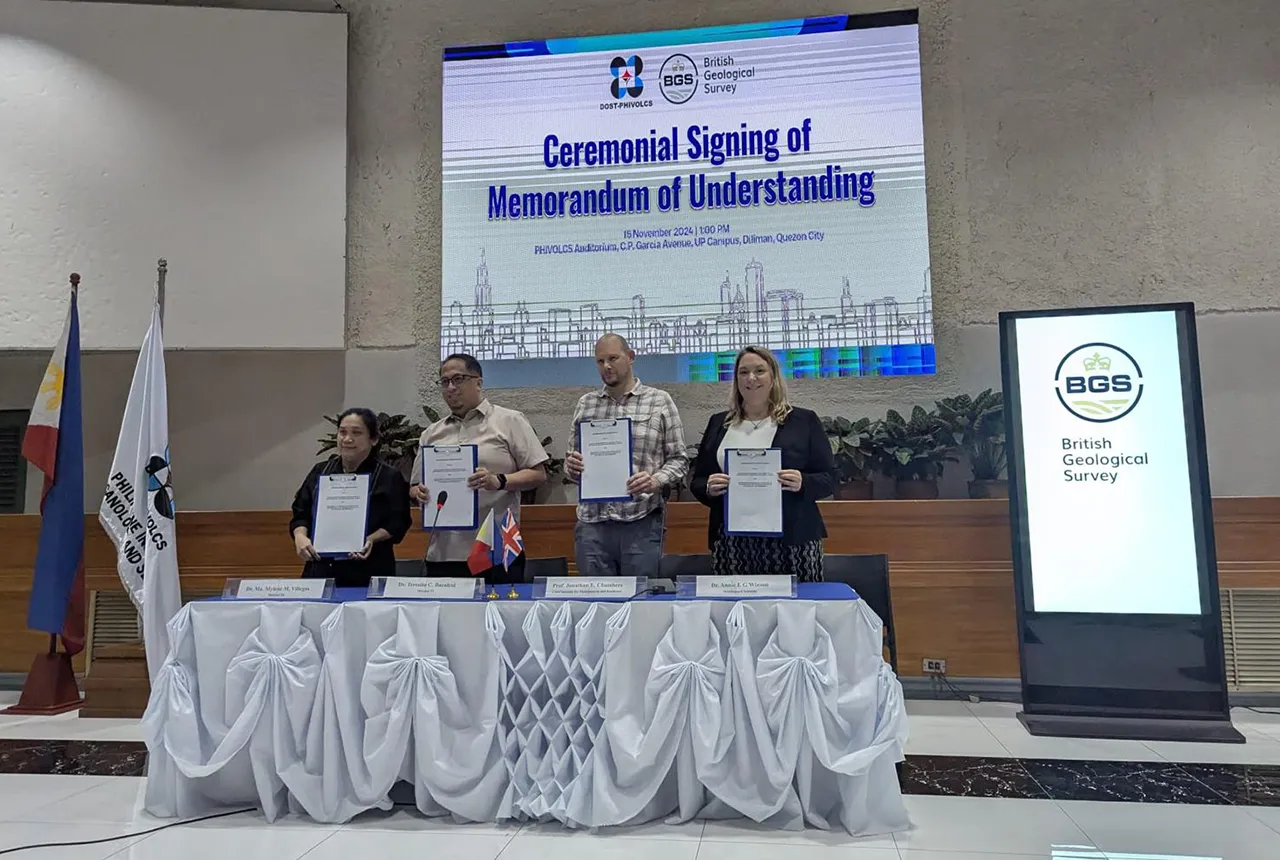
New Memorandum of Understanding paves the way for more collaborative research in the Philippines
21/01/2025
The partnership will focus on research on multi-hazard preparedness within the country.
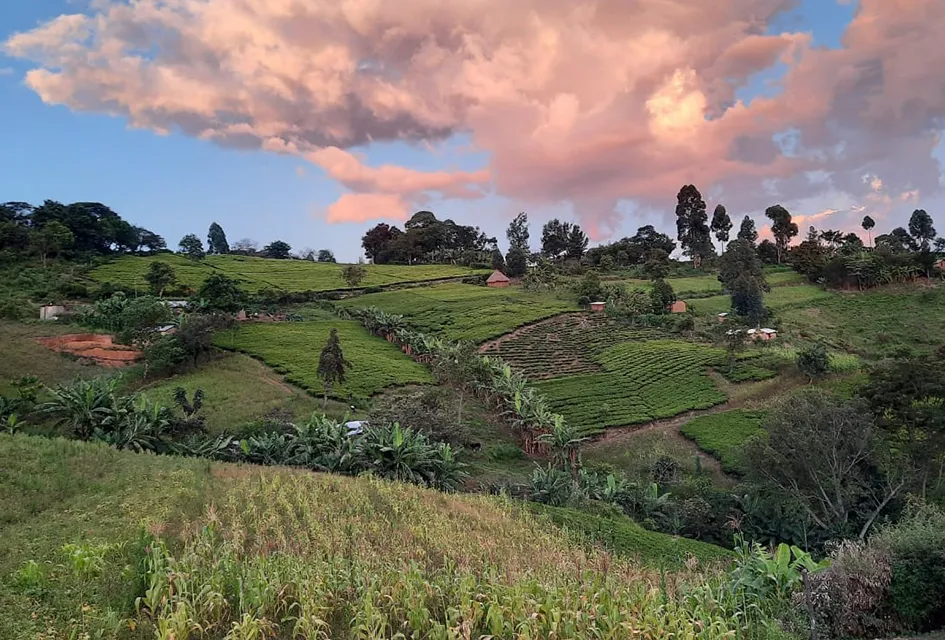
Dynamics of land-to-lake transfers in the Lake Victoria Basin
09/12/2024
In June 2024, a UK/Kenya research team shared research findings from a collaborative, four-year field and experimental programme within Kenya.
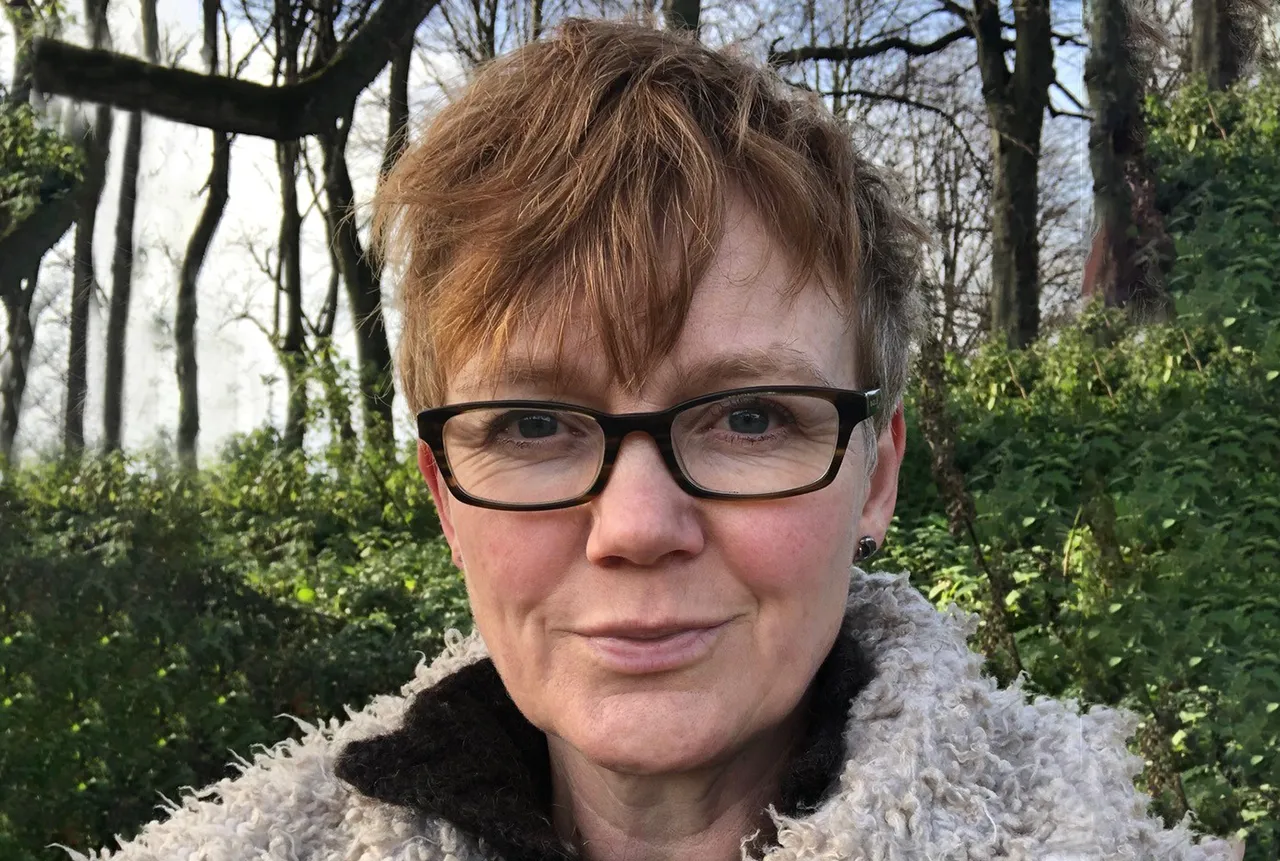
Brighid Ó Dochartaigh honoured with prestigious Geological Society award
27/11/2024
A recently retired BGS employee has been honoured for her contribution to the hydrogeological community.




